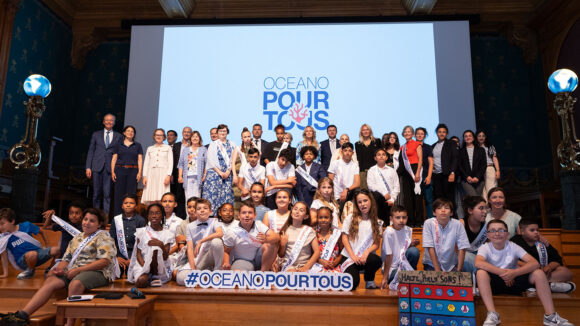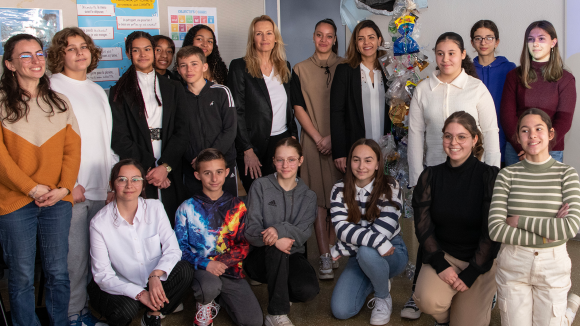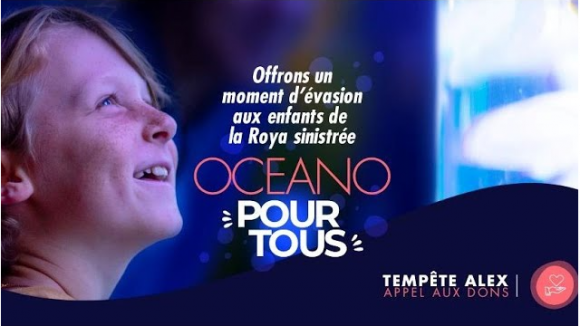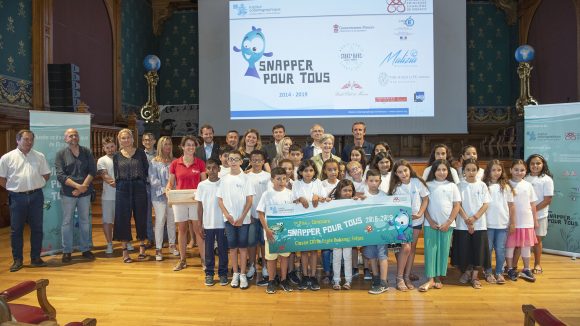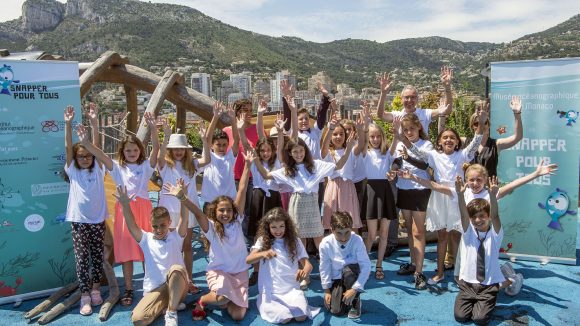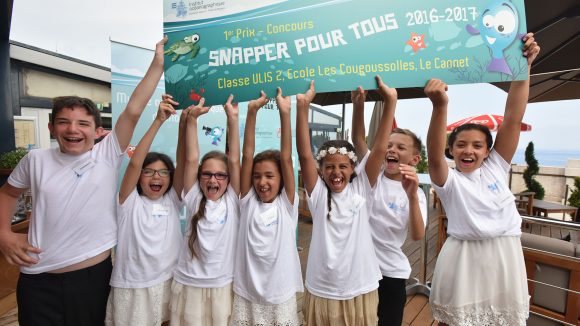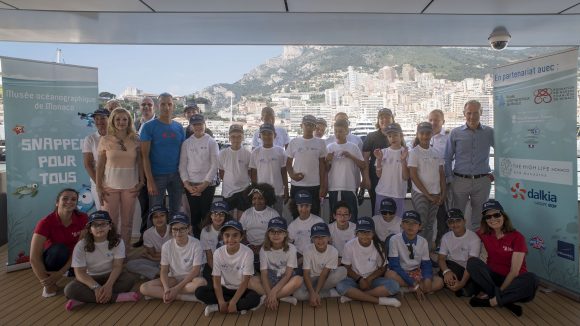Previous editions
- Home
- Actualités
- Previous editions
Since its inception, the “Oceano Pour Tous” (Oceano for All) scheme, formerly known as “Snapper Pour Tous”, has benefited over 2,000 Cycle 3 pupils from priority education networks (REP/REP+), localized units for school inclusion (ULIS handicap) and rural areas.
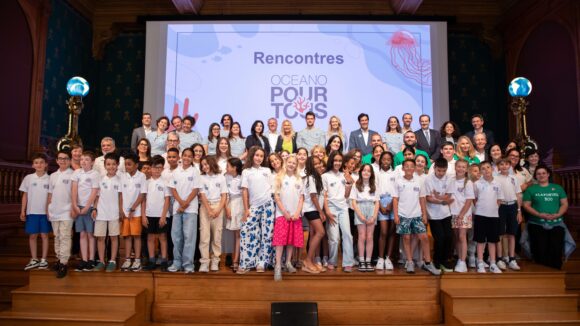
Winning class: Collège M’Tsamboro,Mayotte | École Marcel Pagnol,Cannes-La Bocca
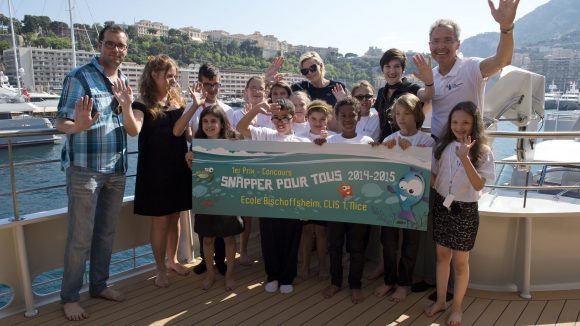
Winning class : Classe CLIS (Classe d’insertion scolaire), Ecole Bischoffsheim, Nice
Teachers’ feedback on the competition and student participation.
Ecole AUBANEL, Fréjus
The “Snapper pour tous!” adventure fitted in perfectly with our class project, whose theme was the discovery and protection of the Mediterranean Sea.
During a day spent at the Oceanographic Museum, the pupils in my class were able to discover the beauty of the seabed in terms of both flora and fauna, but they were also made aware of the problem of plastic waste thrown back into the sea.
The new “Mission plastique” workshop you’re offering has given them the opportunity to experience first-hand the immense problem of plastic waste being dumped at sea. This workshop and the visit to the new “interactive” room were the catalysts for a series of concrete actions in our school and with our students’ families.
ARZIARI School, Nice
I found this project very rewarding, with high-quality animations during the visit, relevant and rigorous scientific elements, all adapted to CP/CE1. I was a little apprehensive before the students shot the film with the tablets on the route and in the museum.
For the students, this project was one of their best school outings ever. They talk about it regularly, especially when they see classmates from other classes or parents whose actions are at odds with nature conservation. They wanted to show in the film everything they had done at school to protect the environment, hence the large part of the film devoted to what was done at school.
OLIVARI School, Biot
The project went very well in my class and we had a lot of fun taking part.
The children come away particularly aware of plastic pollution and have become very vigilant.
We had the opportunity to go back to the seaside the first week of April and all the children are now scandalized that there could be garbage on the beach. When we first visited the beach, before the Snapper project, they had barely noticed the sand pollution, and now they’re desperate to clean up the beach. They also look for pollutants in everyday activities.
For me, this is the most beautiful result of this project.
